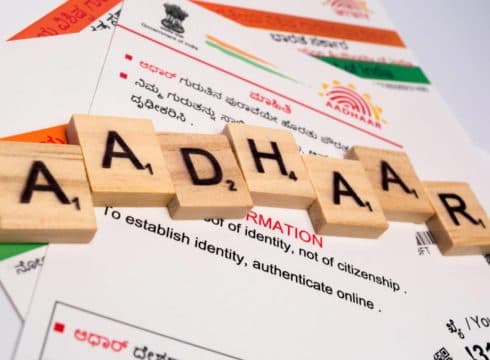Union budget 2019 has proposed removing 180 days mandatory waiting period for NRI Aadhaar cards
Aadhaar amendments bill was recently passed by both the parliament houses
Aadhaar is a 12 digit identification number issued by the UIDAI to the residents of India after satisfying the verification process.
Inc42 Daily Brief
Stay Ahead With Daily News & Analysis on India’s Tech & Startup Economy
The parent body of Aadhaar, Unique Identification Authority of India (UIDAI) on Monday said that it will soon be ready to launch the facility of issuing Aadhaar cards for non-resident Indians (NRIs), without the mandatory 180 days waiting period.
“UIDAI systems are being readied for the facility and necessary legal measures are to be notified soon,” UIDAI CEO Ajay Bhushan Pandey reportedly told PTI. The time period needed for these system changes is estimated to be three months.
“We are working to make the appropriate technological changes and we will provide an appointment facility where people outside the country also can apply for a time slot and specify the place they would like to go to get their Aadhaar made…as soon as they come to India they can, very conveniently, go and get their Aadhaar made,” Pandey added.
This development came after the Union Budget 2019 announcement, wherein India’s finance minister Nirmala Sitharaman has proposed issuing of Aadhaar Card for Non-Resident Indians with Indian Passports after their arrival in India without waiting for 180 days.
Fast tracking of Aadhaar card to NRI passport holders can provide a much-needed push to the tourism sector of India and could also make the opening of bank accounts easier for NRIs in the country.
Aadhaar’s Journey In India
Aadhaar number is a 12-digit random number issued by the UIDAI to the residents of India upon completion of the verification process. The number is connected to citizen’s biometric thumb impression and eye scans, along with their name, permanent address, and mobile number.
The constitutionality of Aadhaar was questioned in personal interest litigation (PIL) filed by a former Judge of the Karnataka High Court, Justice K S Puttaswamy.
In response to which on September 2018, the Supreme Court of India upheld the constitutionality of Aadhaar but amended the Aadhaar Bill to make it mandatory only for the filing of income tax returns and PAN linking. In contrast to the earlier version where Aadhaar was mandatory for availing a host of benefits such as schemes for the below poverty line category, LPG subsidies, midday meals in schools, etc.
However, in July 2019, both the Houses of Parliament have given their final nod to the Aadhaar and Other Laws (Amendment) Bill 2019. This amended bill permits the voluntary use of Aadhaar as a proof of identity (KYC authentication) in order to get mobile phone connections and set up bank accounts.
The new bill also stipulates that a penalty worth INR 1 Cr as well as a term of imprisonment for private entities that contravene the provisions laid down about Aadhaar card data.
Recently, in an August 16 hearing in the Supreme Court, the Tamil Nadu government suggested that the citizens’ social media profiles should be linked to Aadhaar numbers to enforce a check on the rise of fake news in India.
{{#name}}{{name}}{{/name}}{{^name}}-{{/name}}
{{#description}}{{description}}...{{/description}}{{^description}}-{{/description}}
Note: We at Inc42 take our ethics very seriously. More information about it can be found here.


